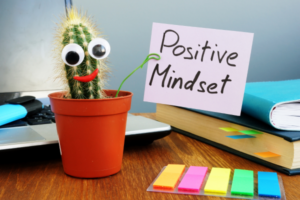Introduction
In today’s world, where information is plentiful and distractions are only a click away, maintaining focus and concentration can seem like an uphill battle. Yet, there’s a powerful tool we can use to enhance these cognitive skills: mindfulness training. This article will discuss how mindfulness training can improve focus and concentration, transforming our approach to work, learning, and life in general.
1. What is Mindfulness?
At its core, mindfulness is the practice of paying attention in a particular way: on purpose, in the present moment, and non-judgmentally. It’s about being fully engaged with whatever we are doing at any given moment, without distractions or mind-wandering.
Mindfulness invites us to notice the world around us and our thoughts, feelings, and sensations without trying to change them. The goal is not to empty the mind but to be aware of what’s happening in the present moment.
The beauty of mindfulness is that it can be practiced anywhere and anytime, not just on a meditation cushion. Whether you’re eating, working, or walking, mindfulness can be integrated into your daily activities.
2. The Power of Presence
A crucial aspect of mindfulness is presence, which entails being fully engaged in the here and now. This presence, honed through mindfulness training, can significantly enhance focus and concentration.
By developing a habit of presence, we can direct our attention where it’s needed and keep it there, resulting in improved concentration. This can be particularly beneficial in tasks that require prolonged periods of focus.
In addition, the practice of presence can reduce the likelihood of getting swept up in distractions. By staying present, we can notice when our mind starts to wander and gently guide it back to the task at hand.
3. Mindful Breathing as a Focus Tool
Mindful breathing is a simple yet powerful mindfulness practice that can help improve focus and concentration. The breath serves as an anchor, keeping us rooted in the present moment.
As we pay attention to our breath, we are practicing the art of concentration. Each time our mind wanders away from the breath and we bring it back, we are enhancing our ability to focus.
Moreover, mindful breathing can serve as a tool to regain focus whenever we find our mind wandering or when we start feeling overwhelmed. A few mindful breaths can help to calm the mind and bring us back to the present.
4. Mindfulness and the Art of Single-Tasking
In a world that often values multitasking, mindfulness proposes a different approach: single-tasking. This is the practice of focusing on one task at a time, giving it our full attention.
By practicing single-tasking, we can reduce the cognitive load on our brain, making it easier to maintain focus and concentration. This can improve the quality of our work and make the process of working more enjoyable.
Moreover, single-tasking can reduce the feeling of being overwhelmed. By concentrating on one task at a time, we can approach our to-do list in a more manageable and less stressful way.
5. Developing Awareness of Distractions
Mindfulness not only helps us improve our focus and concentration but also makes us more aware of potential distractions. By being mindful, we can notice when our attention starts to drift, enabling us to redirect our focus before we get completely sidetracked.
This heightened awareness can be particularly beneficial in our digital age, where distractions are ever-present. By being aware of these distractions, we can make conscious choices about how and when to engage with them.
Furthermore, mindfulness can help us recognize patterns in our distractions. We can start to notice when we are most likely to get distracted and develop strategies to maintain focus during these times.
6. Mindfulness Meditation and Training the Mind
Mindfulness meditation is a formal practice where we sit in silence, focusing on an anchor such as the breath or a word, and continually bring our attention back to that anchor whenever the mind wanders.
Through regular practice, mindfulness meditation can act like a workout for the mind, strengthening our ability to focus and concentrate. Each time we notice our mind wandering and bring it back to the anchor, we are training our “attention muscle”.
Moreover, this practice can cultivate a sense of calm and clarity, helping to reduce mental noise and make it easier to focus on tasks. It can also foster patience and perseverance, skills that can further enhance our ability to concentrate.
7. Mindfulness in Daily Activities
While mindfulness meditation is a powerful practice, mindfulness can also be incorporated into our daily activities to enhance focus and concentration. This is sometimes referred to as informal mindfulness practice.
We can practice mindfulness while eating, walking, or even doing household chores. By bringing full attention to these activities, we are training ourselves to stay focused and present.
Moreover, these everyday activities offer countless opportunities to practice mindfulness. They can serve as reminders to be present, helping us to cultivate a continuous mindfulness practice that enhances focus and concentration throughout the day.
8. Mindful Breaks for Sustained Concentration
Taking mindful breaks is another effective strategy for maintaining focus and concentration over longer periods. These are short breaks where we step away from our work and engage in a few minutes of mindfulness practice.
These mindful breaks can help to recharge our mental batteries, making it easier to maintain focus when we return to our work. They can also provide a respite from any stress or tension that might have built up, helping to prevent burnout.
Furthermore, mindful breaks can add an element of self-care to our day. By taking time to pause and be present, we are sending a message to ourselves that our well-being matters.
Conclusion
Mindfulness training offers a practical and accessible way to enhance focus and concentration. Through the power of presence, mindful breathing, the art of single-tasking, developing awareness of distractions, mindfulness meditation, mindfulness in daily activities, and mindful breaks, we can improve our ability to stay focused and manage distractions effectively.
These practices are not about achieving a perfect state of continuous focus but about cultivating an approach to work and life that values presence, patience, and self-care. By integrating mindfulness into our daily routine, we can navigate our tasks with more clarity, effectiveness, and enjoyment, transforming not just our productivity, but our overall quality of life.



